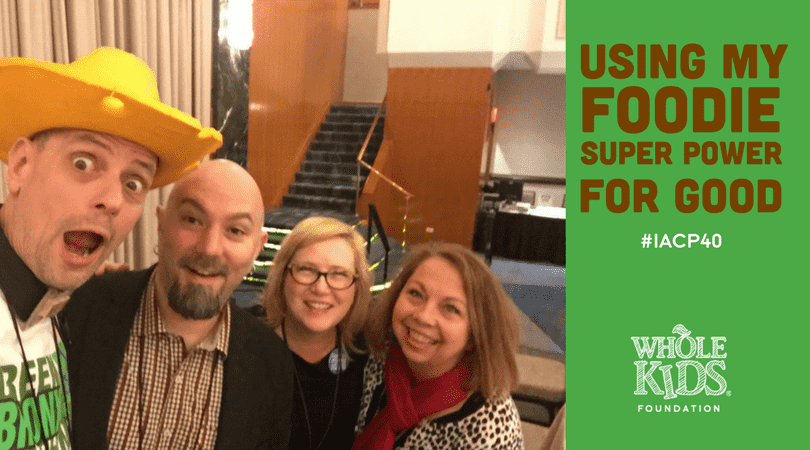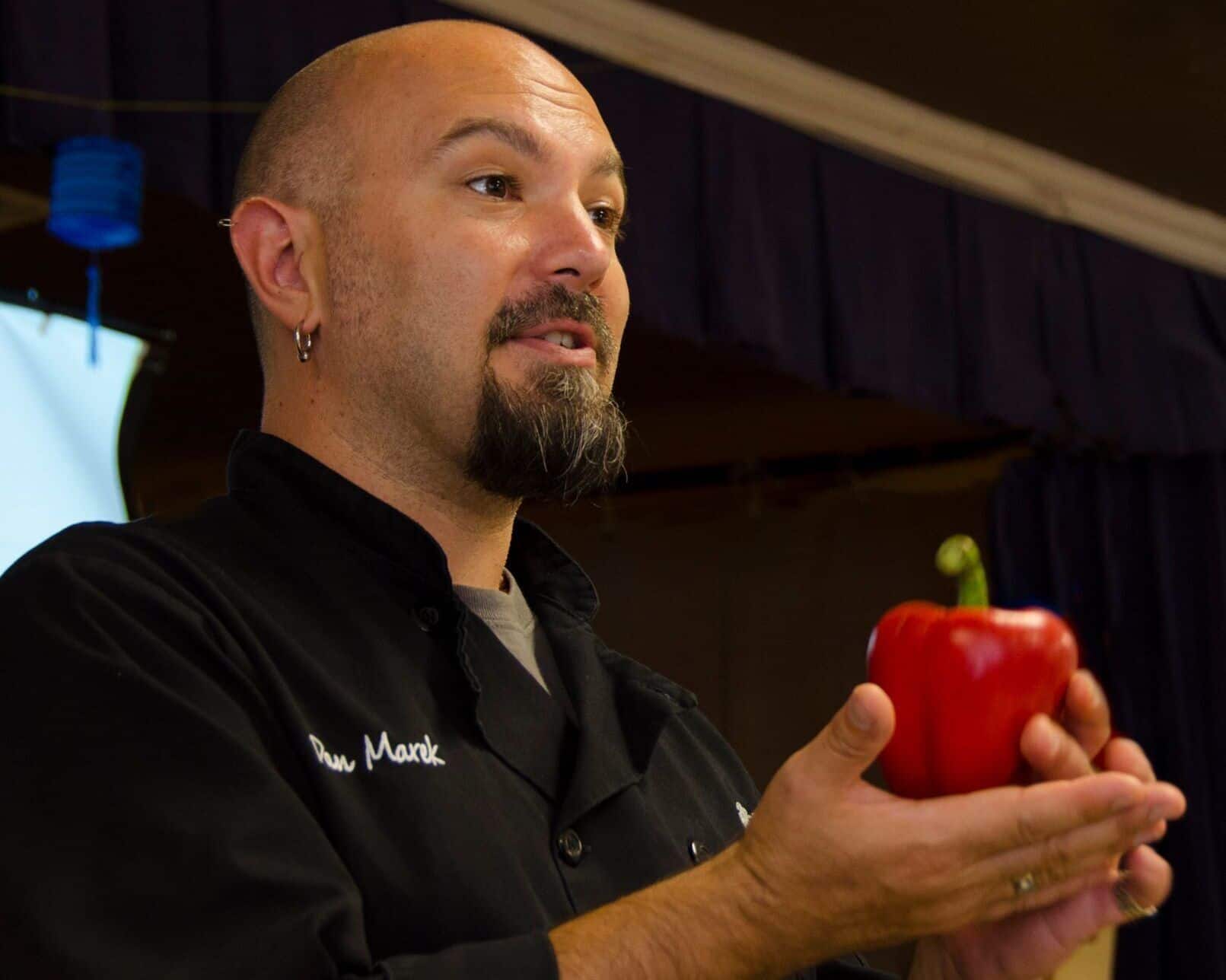More than 800 culinary professionals converged onto New York City last week from all parts of the world to share ideas and discussion on opportunities and issues in our food systems. From chefs to cookbook authors and nutritionists to cooking teachers, food-focused pros embarked on rampant networking, educational sessions and food tastings at the 40th annual International Association of Culinary Professionals (IACP) conference.
The largest organization of culinary professionals worldwide, IACP is known for inspirational sharing that can often enhance or change the career course for culinary professionals. Throughout the 4-day gathering, a theme amongst peers and panel discussions was how culinarians can use their skills and passion to give back and enhance their local and global communities.
Whole Kids Foundation had the opportunity to lead the way in these discussions with School Programs Manager Chef Dan Marek and Communications and Operations Director Cathy Cochran-Lewis hosting a discussion on Using Your Food Super Powers for Good along with esteemed colleagues Chef Hollie Greene, California Program Director for Wellness in the Schools, and Stephen Ritz, author and award-winning educator who leads the Green Bronx Machine and National Health, Wellness and Learning Center, and is credited for creating the first edible classroom in the world with tower gardens at his elementary school in the Bronx.
Although Marek, Greene, and Ritz have impacted substantial change while furthering healthy eating and wellness in schools in their professional lives, and along with Cochran-Lewis, they extend their passion for helping others outside of those careers by volunteering and finding ways to extend their skills to the betterment of children and others in need in their communities.
“It’s not about writing the check,” said Ritz to a late-night audience. “It’s about embracing your own human potential and using that to help others.”
“It’s not about writing the check; it’s about embracing your own human potential and using that to help others.”
Greene shared that helping others can be as simple as cooking a meal for a cancer patient, volunteering at the farmer’s market or taking other small actions that can have an ongoing impact.
“A lot of us don’t realize that we have something to give,” said Greene. “If you have a passion, follow the love and you will find the need somewhere. You don’t have to know it all. There’s so much opportunity to have an impact and that creates a ripple effect.”
Working across four states, Wellness in the Schools aims to help end childhood obesity by teaching kids healthy habits to learn and live better. By partnering with public schools to provide nutrition and fitness education, healthy meals and active recess periods, the organization has impacted 60,000 children in 122 schools, with 20,000+ hours of physical activity and 13,000+ hours of nutrition education, according to Wellness in the Schools 2017 Fast Facts.




